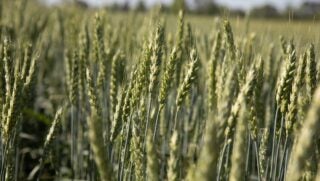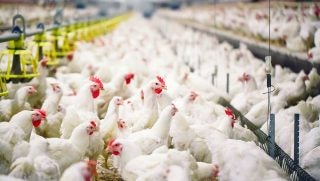This summer, I met a man from New Jersey who told me about his family’s old Guernsey farm. He talked about how much he loved waking up in the mornings to milk the cows with the family. It wasn’t until he made a remark about his old milking stool that I realized that this man grew up milking cows by hand.
After asking a few questions that he thought were a bit silly, he asked me about the dairy farms I have grown up around.
He enjoyed hearing about my experiences with Lely robots, automatic feed pushers, RFID tags, and computer programs to track cow performance. And he was surprised to hear the history of these sorts of technology in the dairy industry.
Some may call robotics and technology the modern way to farm, but some of the technology available is hardly 21st century — it has a long history in place already.
In Belgium 1995, the first robotic milking system, from Lely Industries, was put in. This Lely robot amazed dairymen from all over the world and helped Lely prove that they could revolutionize the industry.
Cows around the world have been getting milked in fully robotic parlors for decades now, designed with cow comfort in mind. The cows can get milked when they want; they run their own schedule!
Automatic feed pushers such as the GEA FRone have provided dairy operations of all sizes more time to focus on tasks other than pushing feed. Many nutritionists recommend that the feed in front of cows is pushed up closer every 45 minutes. Feed pushers are reliable little robots who stick to the same routine, and anyone in the industry knows that cows are hard wired for routines.
Helping this was Dairy Comp 305, a computer program owned by Valley AG Services, that has revolutionized the dairy industry. Dairy Comp 305 allowed producers to ditch the “shoe box method” and instead keep detailed records on the herd in the computer. Having daily reports and information that is more easily accessible, dairy farms were able to increase production significantly.
Valley AG Services and other dairy service companies, such as Dairy One, have been helping producers succeed for decades.
One neat thing about technology in the dairy industry is that a lot of things can be made from scratch.
For example, for farms that don’t have the space for an automatic feeding station for calves, a home made “nipple bar” is a cheap alternative to an automatic calf feeding system.
Can’t justify a GEA FRone or a Lely Juno? Try a feed pusher made out of an ally scraper.
Dairy farms big and small, old and new, all have one common goal. Whether you milked cows by hand like my friend from New Jersey, or you have a parlor full of technology, every farmer can agree that cow comfort is the top goal. The technology on dairy farms today saves time for producers, and provides comfort and consistency to the cows. But is that all?
The most profound impact that automation makes on a dairy farm, in my opinion, is the promoted work-life balance. Farmers are very hard workers, and they work long hours. Automation allows farmers to get away from the farm and spend time with family.
For a small dairy farmer who has no employees, simple outings such as a special dinner or wedding can create big headaches. Someone has to milk the cows. Robots allow farmers to walk away for a while, and not have to worry about getting the herd through the parlor on time.
Dairy Comp 305 has allowed farm managers to go away on vacation while still watching over the herd. When a farmer has over a thousand cows, getting a phone call that number 9272 has mastitis can cause a lot of commotion. With the computer, a herd manager can simply look up a cow’s history from home and direct their employees correctly.
My favorite part about having automation on the farm is having the ability to have lunch with the whole team. With the robots milking and the alley scrapers cleaning, there is no reason why the team cannot get together for an hour to celebrate a birthday or have a pizza party.
These little things add up to a lot when it comes to employee welfare and happiness in the work-place. With automation, anything is possible.
Elizabeth Maslyn is a Cornell University student pursuing a career in the dairy industry. Her passion for agriculture has driven her desire to learn more, and let the voices of our farmers be heard.



